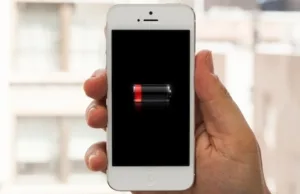Forget lithium-ion – and say hello to lithium-sulphur. Sony is developing these new batteries, with plans to bring them to market in 2020.
Sony plans to increase energy density per volume by 40%, from the current 700Wh/L to 1,000Wh/L, says Nikkei. The company will achieve this by using a sulphur (S) compound as an electrode material. Compared to today’s Li-ion batteries, Li-S devices have as much as a 40% higher capacity (lifetime).
The first target market will be laminate batteries for smartphones, followed by other applications.
Sony is using a sulphur compound for the positive electrode, and metal lithium for the negative electrode. Although the sulphur-based electrode has a low voltage, the theoretical value of its current capacity per electrode weight is ‘very high’ writes the Nikkei.
Metal lithium faces difficulties for use in a rechargeable battery. When it is used in such a device, the battery generates branch-like lithium deposits called dendrites at its negative electrode, as it is charged and discharged. These can cause a short circuit, by breaking through the separator insulating the positive and negative electrodes. If this happens, it can cause heat generation or ignition. According to the Nikkei, Sony has not solved this problem yet.

